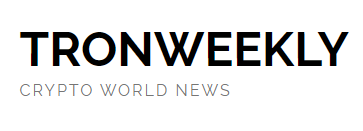You are here: Home / News / Solana Co-Founder Rejects Government Crypto Reserves Despite Solana Inclusion

March 8, 2025 by Onyi
- The Co-founder of Solana rejects President Trump’s plan for a U.S. crypto reserve; he believes that the government involvement would threaten decentralization
- On Second Thought, He suggests that if it just be, then every individual state should manage their own crypto reserves
Anatoly Yakovenko, Co-founder of Solana, rejects President Donald Trump’s plan for a U.S. crypto reserve, arguing that government involvement threatens decentralization.
Solana Co-Founder Rejects Trump’s Crypto Reserve Plan
On March 6th, the co-founder Anatoly shared his thoughts in an X post about President Trump’s proposal to create a national crypto reserve featuring major assets like Bitcoin, Ethereum, XRP, Cardano, and Solana.
My reserve order of preference
1. No reserve, because if you want decentralization to fail you’d put the government in charge of it.
2. Or states run their own reserve as a hedge against the fed making a mistake
3. Or if there has to be a reserve, it’s based on objectively… https://t.co/LfYXCIeRnG
He also added that he was not consulted about SOL being part of the reserve plan. Yakovenko firmly opposed the idea, arguing that the main goal of decentralization cannot happen if authorities control digital currencies.
Suggests State-Owned Crypto Reserve
According to his post on X, His top choice was to have no crypto reserve at all, because he believed that government control could lead to the failure of decentralization which is the major core of crypto and digital assets.
As a second option, he suggested that every individual state should manage their own crypto reserves. He believed that this approach could act as protection against possible mistakes by the Federal Reserve. According to Yakovenko, he preferred this over a single national reserve, as he saw state-level control as a way to reduce risks.
He added that If a reserve must exist, it should be based on clear, measurable requirements. However, He did not have a clear and strong opinion on what these standards should be, even if they currently favored only Bitcoin. But regardless, he stressed that the criteria must be transparent and logically justified. He also expressed confidence that the Solana ecosystem would adapt to any set targets.
Yakovenko pointed out that at least 26 U.S. states have introduced Bitcoin strategic reserve bills, according to the Bitcoin Reserve Monitor. This reinforced his view that state-managed reserves were a better alternative to a federal-level system.
On March 2, U.S. President Donald Trump revealed a list of cryptocurrencies for a planned strategic reserve. He stated that the Working Group on Digital Assets had been directed to include XRP, Solana, Cardano, Bitcoin, and Ether in the upcoming initiative.
Related | Dogecoin’s (DOGE) 71% Crash from ATH: Can a 118% Rally Save It?

 7 months ago
42
7 months ago
42




 English (US) ·
English (US) ·